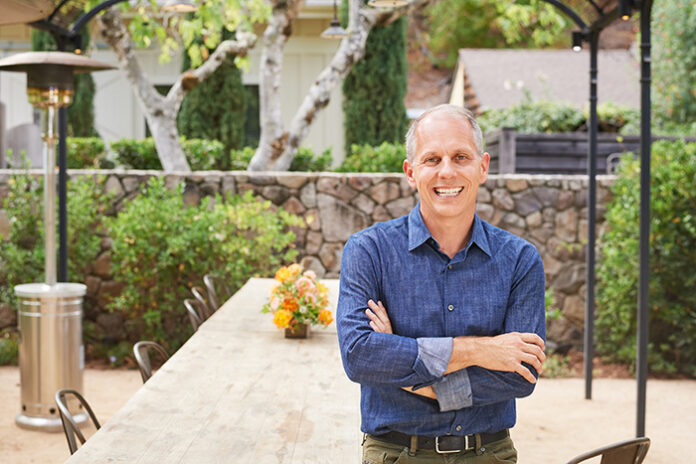U.S. stock markets responded negatively, moving into bear market territory for the first time in more than 10 years. This happens when indexes fall by 20% or more. The Fed lifted interest rates to try and cool off inflation which rose to 8.6% in May, the highest level since 1981. Inflation is when retail prices substantially increase the cost of living, usually as a result of demand outpacing supply.
Higher interest rates make borrowing money more expensive, which in turn reduces spending. By increasing interest rates, the Fed is trying to slow the economy by lowering demand for goods and services, which means businesses are going to hold less inventory. When there are fewer buyers, sellers have to reduce prices to get people to start buying again.
It takes time for global markets to reverberate their way through to local economies, and it’s still too early to know if or how the Fed rate hike will impact the City of Healdsburg. In Sonoma County, unemployment was 6.2% in April 2021 versus 2.6% in April 2022, according to the U.S. Bureau of Labor, which releases unemployment rates by county 60-days in arrears. The employment rate is one way to benchmark disposable income and purchasing power because when people start to worry about their jobs, they stop spending money. But it remains to be seen what the local impact will be.
“Places like Healdsburg should not be too worried about what’s been going on as a result of Federal Reserve changes,” says Robert Eyler, Ph.D., professor of economics at Sonoma State University. But just two months ago, economists who were predicting that median home prices would rise 12 to 15% lowered their forecasts to just 5 to 7%. Eyler predicts median housing prices will be flat by the end of the summer.
The City of Healdsburg has roughly 140 full-time equivalents, about half a dozen open jobs they are trying to fill, and does not anticipate layoffs as a result of stock market volatility. Healdsburg’s leading source of revenue comes from a Transient Occupancy Tax (TOT), which is made up of hotel tax, sales tax and property tax. TOT is the city’s largest source of revenue, comprising roughly a quarter of what the City of Healdsburg takes in. Local hotels charge their guests a TOT of 14% on top of their room rate, which is also the main source of funding for community services, including parks and recreation and programs for seniors.
But since they are linked to tourism, hotel and sales tax are more volatile revenue sources. Historically, tourism declines when prices rise. But the past doesn’t always dictate the future. With travelers clambering to get back out into the world post pandemic lockdown, hotels are busy, even though the cost of air travel this summer is up 47% over 2021 and 34% over 2019, according to the Transportation Security Administration.
Higher end, luxury resorts may be a bit more impervious to stock market swings. Joseph Bartolomei, managing partner of the Farmhouse Inn, which caters to upscale travelers, says that so far, his occupancy rates are unaffected. “Ask me again in six months, and I’ll probably have more to say. Right now, we’re all watching cautiously to see what the impact is going to be.”
The Farmhouse Inn has 25 luxury suites and a Michelin star restaurant which serves a 6-course prix fixe featuring locally sourced ingredients for $150 per person. Wine pairings are an additional $130 per person, bringing the total to $280 per person with wine. The eatery pours varietals from Ryme Cellars (known for its Carneros Vermentino), Small Vines (Sonoma Coast Chardonnay and Russian River Pinot Noir) and Sheldon Micro-winery (grenache and syrah). Room rates average $1,100 per night, which includes complimentary snacks, s’mores at night and a concierge team that prepares custom itineraries for guests.
Receipts at wine tasting rooms are another important economic indicator. There are more than 1,600 business licenses issued that allow for wine tastings in Sonoma County. “Ever since [Gov. Gavin] Newson lifted the lockdown order [on June 15, 2021], our Sonoma wine tasting business has been increasing steadily. June is on track to be our biggest month ever,” says Jennifer Halleck, owner of Halleck Vineyard, which makes award-winning Sonoma Coast Pinot Noir, Dry Gewurztraminer and other varietals. Halleck Vineyard charges $65 per person for a wine tasting experience at their Sebastopol estate that includes eight different wines paired with local cheeses.
One major appeal of wine country for tourism, particularly during the pandemic, is its easy accessibility via car. Still, it’s worth noting that air traffic at Healdsburg Municipal Airport has been significantly impacted by rising fuel costs, which were up to more than $4 a gallon in April, almost twice what they were in late 2021. But not all fliers have been equally affected. “The general part of aviation that’s recreational is off about 35% because of the increase in fuel prices,” says airport manager Barry Halloway. “But corporate air travel has remained steady,” he adds, suggesting that luxury travel may be the silver lining Healdsburg needs most.
“If the Fed rate increase is a signal that we’re going into a down economy, we’re still going to see luxury travelers. Maybe not quite as much, but the higher-end hotel properties in Sonoma County and Napa will probably fare a down economy better than mid-tier products. Because those travelers are going to be less likely to spend money. They’re going to be more concerned about disposable income,” says Bartolomei.
Eric Schwartzman is editor of the ‘Sonoma Wine Tasting Blog.’








